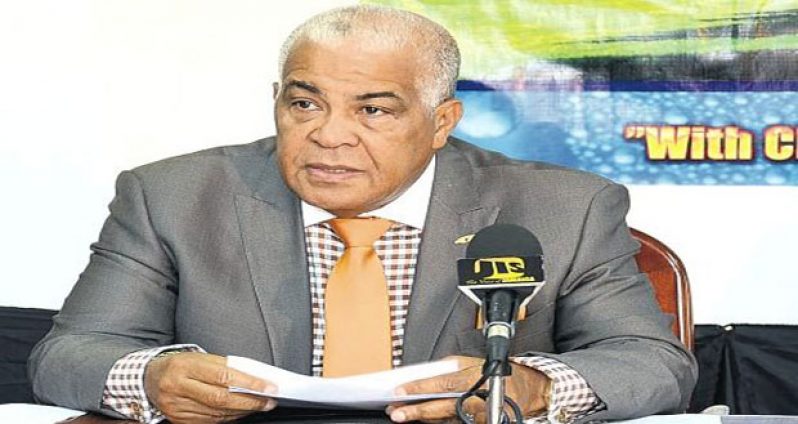THE 55th Special Meeting of the Council for Trade and Economic Development (COTED) on Energy and the Environment opened yesterday at the CARICOM Secretariat at Liliendaal, Greater Georgetown with Jamaica’s Minister for Land, Water, Environment and Climate Change, Robert Pickershill, calling on CARICOM to move closer to implementing a unified energy framework.Believed to have brought together Energy and Environment Ministers in the Caribbean for the first time, the meeting sought to closely examine the real nexus between energy and climate change, and their contributions towards the sustainable development of the Caribbean Community.
Pickershill told the gathering that member states have common development challenges. He noted that one of the major challenges, particularly for energy projects, is the size of Caribbean nations.
“Small energy projects are less attractive to blue chip investors and engineering procurement and construction,” he contended.
Pickershill said it is important for the Caribbean Centre for Renewable Energy and Energy Efficiency (CCREEE) to focus on regional approaches to energy projects that can overcome these challenges.
This, he said, would require coordination of policies, even as he underscored the importance for CARICOM to move ever closer to implementing a unifying energy framework, and pursue uniformity and integration regulations so as to enable more transformative energy projects and make the region attractive to the right kind of investments.
OIL PRICE UPSWING
Pickershill said there is a possibility the Community could take advantage of the current ebb in energy enterprises and the ongoing prominence of climate change in international forums to invest in energy transformation so as to insulate the region from the inevitable upswing from oil prices that will come.
CCREEE, he said, could be the lead institution in implementing this transformation.
It is well recognised that energy transformation and climate resilience are quite complex matters, he said. For instance, consider the nexus around issues of climate change and water. Climate change affects water availability, water availability is important for the production of energy or hydroelectricity for cooling conventional generation and treatment and distribution of water.
COMPLEX RELATIONSHIP
With climate change affecting energy demand for water, pumping and treatment demands are often satisfied by inefficient and polluting sources. This, coupled with the unavailability of water, takes a toll on agriculture, reinforcing the complex relationship between water and climate change, he said.
“Climate change and energy water concerns must be central aspects at the highest levels of all public and private policy-making development plans,” he noted. “To achieve sustainable development, our countries must, inter alia, improve the efficiency of water delivery, transform their energy systems through energy security, improve macro-economic indicators and reduce pollution, build climate resilience of the water and energy sectors through improved infrastructure and greater efficiency, and capitalise on opportunities for efficiency in the use of energy and water,” Pickershill detailed.
Renewable deployment and the scale of energy efficiency are traditionally viewed as important to the mitigation of greenhouse gases’ emission. The importance of renewable energy in climate change adaptation and resilience building cannot be over-emphasised, Pickershill said.
He explained that by deploying renewable energy in farming and rainwater harvesting applications, farmers tend to be resilient to the effects of climate change.
Pickershill said that through smarter use of energy and improved energy performance in buildings and equipment, businesses can save money and increase their competitiveness, which in turn would increase their adaptive capacities.
He added that smart grid technology can improve the resilience of the power grid, and reduce the severity of outages associated with extreme weather, while also allowing for increased capacity of the grid to absorb outages.
“That is why adaptation through sustainable energy development can and should be pursued,” he advised. “As leaders, we must recognise the importance of co-operation and optimisation within our respective governments as well as within our Community.
“We must take comprehensive and coordinated action to maximise the benefits of our efforts,” Pickershill urged.
The dialogue at the Special COTED meeting on Energy and the Environment aims to identify strategies and mechanisms for investments that would assist the region in realising sustainable energy development, while adapting to climate change.
CARICOM Deputy Secretary-General, Ambassador Manorma Soeknandan, reported that the Special COTED on Energy on Wednesday was “quite productive”. (Tajeram Mohabir)



.jpg)









